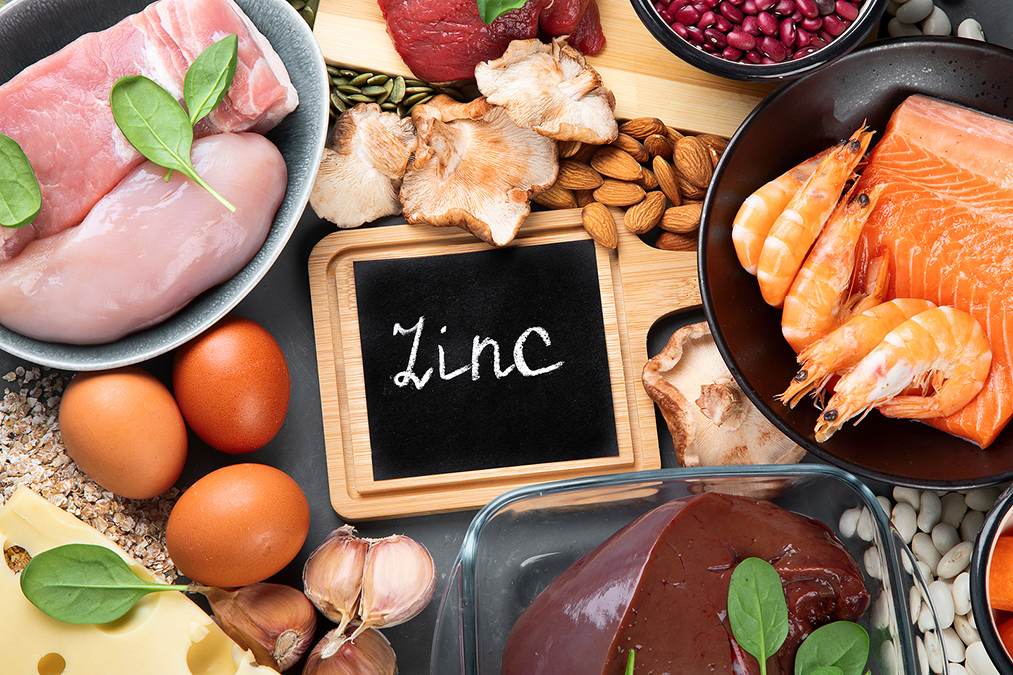 Infections cause far greater numbers of hospitalizations and deaths among CKD patients than among the general population.
Infections cause far greater numbers of hospitalizations and deaths among CKD patients than among the general population.
A study in the latest Journal of Renal Nutrition reveals that CKD sufferers with a specific mineral deficiency are in fact 93% more likely to be hospitalized with serious infection compared to those who recorded sufficient levels of the mineral.
And this happens to be a mineral that 80% of CKD sufferers lack.
Zinc deficiency is very common among people with CKD. A large amount of zinc is lost through CKD sufferers’ urine and too little of it is absorbed through their gastrointestinal tracts.
Strangely, however, very few studies have been published on the relationship between zinc deficiency and other health outcomes in people with CKD. This is the research gap that the authors of a recent study tried to fill.
They identified 233 CKD sufferers whose zinc levels were measured between 2013 and 2016.
They counted the number of infections, infection-related hospitalizations, and infection-related deaths suffered by their subjects during the following three years.
Unbelievably, they found low zinc levels in 80% of their subjects, an indicator of just how serious this problem is in people with CKD.
During the three years of follow-up, 40 of the CKD patients were hospitalized with infections that included urinary, respiratory, soft tissue, bone, and joint infections.
Those with low zinc levels were 93% more likely to be hospitalized with an infection when compared with those with higher zinc levels.
The risk was even larger for CKD sufferers with zinc deficiencies who were also on proton pump inhibitors for acid reflux. These subjects were 2.66 times more likely to be hospitalized with an infection.
Many studies have shown that long-term proton pump inhibitor users find it hard to absorb micronutrients at the levels that their diets demand of them, which more than likely explains the zinc problem here.
Those with the lowest zinc levels were also much more likely to be hospitalized for periods of more than 10 days, showing that their infections were not only more serious, but also harder to clear up.
The association between zinc deficiency and serious infections was especially strong for people in the later stages of CKD.
Therefore, if you have CKD, try to avoid proton pump inhibitors and consume as much zinc as possible. And don’t forget to get your zinc level monitored regularly.

 Overcoming IBD
Overcoming IBD Multiple Sclerosis
Multiple Sclerosis Banishing Bronchitis
Banishing Bronchitis Gum Disease Gone
Gum Disease Gone Overcoming Onychomycosis
Overcoming Onychomycosis Neuropathy No More
Neuropathy No More The Prostate Protocol
The Prostate Protocol Brain Booster
Brain Booster
 Ironbound
Ironbound
 Solution for Shingles
Solution for Shingles
 The Bone Density Solution
The Bone Density Solution
 The Ultimate Healing Protocol
The Ultimate Healing Protocol
 The Parkinson's Protocol
The Parkinson's Protocol
 The Chronic Kidney Disease Solution
The Chronic Kidney Disease Solution
 Overthrowing Anxiety
Overthrowing Anxiety The Fatty Liver Solution
The Fatty Liver Solution The Hypothyroidism Solution
The Hypothyroidism Solution
 The End of Gout
The End of Gout The Blood Pressure Program
The Blood Pressure Program
 The Oxigized Cholesterol Strategy
The Oxigized Cholesterol Strategy
 Stop Snoring And Sleep Apnea Program
Stop Snoring And Sleep Apnea Program
 The Arthritis Strategy
The Arthritis Strategy The Vertigo & Dizziness Program
The Vertigo & Dizziness Program The 3-Step Diabetes Strategy
The 3-Step Diabetes Strategy Hemorrhoids Healing Protocol
Hemorrhoids Healing Protocol The Erectile Dysfunction Master
The Erectile Dysfunction Master Weight Loss Breeze
Weight Loss Breeze The IBS Program
The IBS Program The Insomnia Program
The Insomnia Program The Migraine and Headache Program
The Migraine and Headache Program The Neck Pain Solution
The Neck Pain Solution The Menopause Solution
The Menopause Solution The Ejaculation Master
The Ejaculation Master The TMJ Solution
The TMJ Solution The Acid Reflux Solution
The Acid Reflux Solution The Fibromyalgia Solution
The Fibromyalgia Solution The Psoriasis Strategy
The Psoriasis Strategy